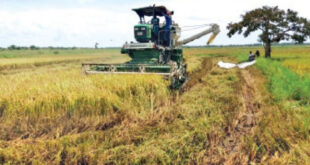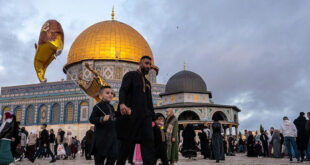When one talks of the history of Sri Lanka in the decades before independence, the issues which come to mind immediately are the Sinhala-Buddhist nationalistic awakening;controversies over Indian migrant labour; and the Tamils’ struggle for equality with the majority Sinhalese. The Muslims’ struggle to organise themselves and fight for their rights is not recognised.
But the fact is in the pre-independence era too, the Muslims struggled hard, and against great odds. Then, as now, there was a strong Sinhala-Buddhist majoritarian sentiment thwarting the minorities’ efforts to secure their communal rights in a multi-ethnic and multi-religious country. There were weaknesses among the Muslims as a community, which militated against political action.
Two Books
These not-so-well recognised aspects of Lankan history have been brought out succinctly in two books: ‘A life serene: A life sketch of Al Haj. Dr. T.B. Jayah’ by Enver C. Ahlip, published by the National Institute of Education Press with a forward by Dudley Senanayake and ‘A tale two eras: Life sketch of M.H. Amit,’ an autobiography by M.H. Amit as told to A.H.M. Azwer.
To begin with, the Muslims lacked awareness, which was rooted in a lack of a modern Western education. Muslim parents feared that Western education would dilute their wards’ commitment to Islamic values. It was also thought that a Western education was unnecessary for a trading community. The community was apolitical, based on a fear that entering into a political competition could lead to a backlash from the majority community which will hit their trading interests.
Living in a cocoon
However, educated Muslims like Tuan Burhanuddin Jayah (T. B. Jayah) felt that living in a cocoon could be ruinous for the Muslims. Jayah feared that unorganised communities could be dominated and eventually erased.
Muslim political activity had begun with the formation of the Young Muslim Association in 1918. But the landmark was the founding of the All Ceylon Muslim League (ACML) in 1923 by T.B. Jayah. Jayah began his political career by trying to get Muslim Government employees, permission to go out of office for the Friday noon congregational prayers, a must in Islam.Though the demand was innocuous, it took a long time to be conceded. This made Jayah realise that if the Muslims lost opportunities to set matters of discrimination right “an overzealous bureaucracy can wreck the wellbeing of a minority, which, because of its ineffective numerical strength, can be all too easily discriminated against.”
Framing legislation
On 31 July 1925 Jayah told the Legislative Council: “The Government should not come to hasty conclusions in framing legislation, particularly when it is likely to affect certain communities, at least the religious views of some communities.”
He went on to plead that if the abuses in certain communities had to be corrected, the wishes of the communities concerned should be ascertained beforehand. “It may be that the Government is actuated by the best motives and the best of intentions, but that is no reason why the wishes of the people should not be consulted before hand,” he submitted.
Donoughmore Commission
When the Donoughmore Commission on the future Constitution of Sri Lanka came to the island in 1927, Jayah’s ACML submitted memoranda asking for adequate representation for the Muslims. But according to Ahlip, the Muslim case was spoilt when community leaders failed to heed Jayah’s advice to sink their differences and present a united front before the commission. While the Moors said that they were indigenous to Sri Lanka and therefore entitled to special consideration, the Malays said that they were distinct and therefore needed separate representation. And everybody tried to isolate Indian Muslims, who were themselves a disunited group differing in language and place of origin in India.
The result was devastating. “The commissioners were so puzzled that they decided to abolish communal representation altogether, calling it a canker in the body politic,” Ahlip said. The Donoughmore Commission’s decision came as a rude shock to Jayah. The ACML collected 50,000 signatures and sent a delegation led by Jayah to England to meet the Secretary of State for the Colonies. But the latter said that he was helpless as the State Council had already passed the Donoughmore Constitution.
In 1936, the Sinhalese leaders in the State Council manipulated the committee system established by the Donoughmore Constitution to form an ‘all-Sinhala Board of Ministers’ keeping the minorities out of the executive.In the majority community’s view the minorities’ demand for communal representation was a demand for exclusive privileges. The majority felt that the minorities were unwillingness to integrate with the majority.
“The majority community felt that any projection of minority interests was ipso facto contrary to the national interest,” Ahlip said and added: “This was the beginning of the hardening of the attitude of the Sinhala elite to minority aspirations already evident in the activities of the Ceylon National Congress in the ungracious manner in which it disposed of Sir Ponnambalam Ramanathan.”
Minority Group
Completely out of the Board of Ministers, the minorities formed a ‘Minority Group’ in the State Council to fight for their rights. T.B. Jayah, Sir M. Macan Markar and A. C. M. Khaleel were its Muslim members. Meanwhile, Justice Akbar and M. H. Amit demanded a civil service in which all ethnic groups would be represented as per their proportion in the population.
But minority solidarity received a blow when the Tamil leader G. G. Ponnambalam demanded representative seats to be divided on a 50:50 communal basis with the lion’s share of the minorities’ seats going to the Tamils (25 per cent for the Tamils and the rest divided between a number of other minorities, including Muslims). The Muslims rejected this formula.
On the rebound, the Muslims accepted D. S. Senanayake’s counter-proposal to give 43 per cent to the minorities and keep 57 per cent for the majority Sinhalese. In return, Senanayake accepted the idea of territorial representation to enable Muslims to be elected. As part of the deal, Jayah and his colleagues pledged ACML’s support to Senanayakes struggle for Ceylon’s independence from Britain.
However, despite these bitter experiences, Jayah was a staunch supporter of Sri Lanka’s independence. He campaigned for the creation of the Muslim State of Pakistan but would not countenance the division of Sri Lanka. He told the State Council that freedom for Sri Lanka was more important than “mere communal advantage.”
Soulbury Commission
In 1943, the Soulbury Commission was established to draft a post-World War II Constitution for Ceylon. Muslim organisations demanded reserved seats for Muslims in Elections. But Soulbury rejected communal reservation. He proposed (a) one seat for every 79,000 population (b) one seat for every 1,000 sq miles (c) multi-member constituencies.
However, to protect them the Soulbury Commision recommended two provisions: (1) “Parliament of Ceylon shall not make any law rendering persons of any community or religion liable to disabilities or restrictions to which persons of other communities are not made liable (2) Any bill which evoked “serious opposition by any racial or religious community and which, in the opinion of the Governor-General, is likely to involve oppression or serious injustice to any community, must be reserved by the Governor-General.”
These provisions resulted in the Muslims fully accepting the Soulbury proposals and resolving to work for Ceylon’s independence.
Since the Soulbury Constitution instituted the parliamentary form of Government, political parties had to be formed. Therefore, D. S. Senanayake’s National Congress; SWRD Bandaranaike’s Sinhala Maha Sabha, T. B. Jayah’s All Ceylon Muslim League and Razeek Farid’s All Ceylon Moors’ Association and some non-partisan Tamils came together and formed the United National Party (UNP) in September 1946. The Muslims’ identification with the UNP has survived to a large extent in many parts of the island, despite the onslaught of the Sri Lanka Muslim Congress and its splinter groups since the 1980s.
Post Disclaimer | Support Us
Support Us
The sailanmuslim.com web site entirely supported by individual donors and well wishers. If you regularly visit this site and wish to show your appreciation, or if you wish to see further development of sailanmuslim.com, please donate us
IMPORTANT : All content hosted on sailanmuslim.com is solely for non-commercial purposes and with the permission of original copyright holders. Any other use of the hosted content, such as for financial gain, requires express approval from the copyright owners.
 Sri lanka Muslims Web Portal Sri Lanka Muslims News Center
Sri lanka Muslims Web Portal Sri Lanka Muslims News Center

 Donate
Donate


